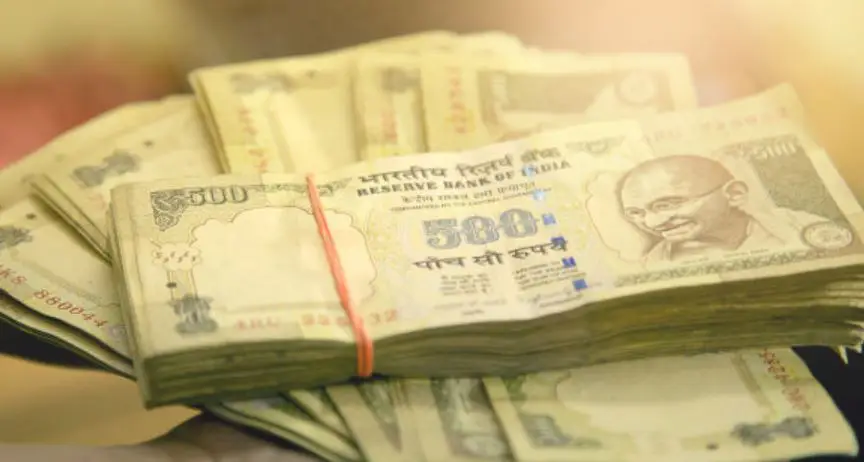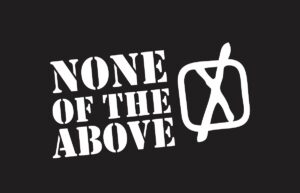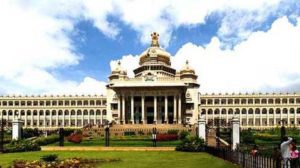Table of Contents
Indian black money its Sources, Effects and how to Curb it | UPSC – IAS
What is black Money and White money ?
Black money is a term used in common parlance to refer to money that is not fully legitimate in the hands of the owner or earned from illegal sources (according to the law specifies). And White money that is earned legally, or on which the necessary tax is paid. The total amount of black money deposited in foreign banks by Indians is unknown. Some reports claim a total of US$1.06 – $1.4 trillions is held illegally in Switzerland. This could be for two possible reasons.
- First is that the money may have been generated through illegitimate activities not permissible under the law, like crime, drug trade, terrorism, and corruption, all of which are punishable under the legal framework of the state.
- Second and perhaps more likely reason is that the wealth may have been generated and accumulated by failing to comply with the tax requirements.
There have been several estimates regarding the extent of black money economy also called as parallel economy. Some of the estimates suggest it to be as high as up to fifty to hundred percent.
Although black money in India is decades old problem, it has become real threat post liberalization. Illegal activities such as:-
- Crime and corruption,
- Non compliance with taxation requirements,
- Complex procedural regulations,
- Cultural and social practices,
- Globalization along with weak institutional, policy, legal and implementation structures have further augmented the black money economy.
Sources of Indian black money | UPSC – IAS
The root cause for the increasing rate of black money in the country is the lack of strict punishments for the offenders. The criminals pay bribes to the tax authorities to hide their corrupt activities. Thus, they are rarely punished by the judge. The criminals who conceal their accounts from the government authorities include big politicians, film stars, cricketers, and businessmen.
Gold imports through official channel and smuggling is a major conduit to bring back the black money from abroad and convert into local black money as the gold commands high demand among the rural investors particularly.
In particular following are some of the mechanisms through which black money is circulated, utilized and the profits earned are further invested in other sectors to generate further money.
- Real estate: Due to rising prices of real estate, the tax incidence applicable on real estate transactions in the form of stamp duty and capital gains tax can create incentives for tax evasion through under-reporting of transaction price.
- Bullion and jewellery market: The purchase allows the buyer the option of converting black money into gold and bullion, while it gives the trader the option of keeping his unaccounted wealth in the form of stock, not disclosed in the books or valued at less than market price.
- Financial markets transactions: IPO manipulations, Rigging of market such as use of shell companies.
- Public procurement: Public procurement has grown phenomenally over the years – in volume, scale, and variety as well as complexity. The Competition Commission of India had estimated total public procurement figure for India at around 10 to 11 lakh crore per year and provides ample scope of corruption due to rigged procurement process.
- Non-profit organizations: Taxation laws allow certain privileges and incentives for promoting charitable activities which are misused and manipulated. Highlighted by FATF as well. Used to park funds of corrupt politicians and businessmen.
- Informal Sector and Cash Economy: Cash transactions, large unbanked and underbanked areas contribute to the large cash economy in India.
- External trade and transfer pricing: Transfer profit/income to no tax or low tax jurisdictions by MNCs. Developing countries may be losing over US$160billion of tax revenues a year, primarily through transfer pricing strategies.
- Trade-based Money Laundering (TBML): Disguising the proceeds of crime and moving value through the use of trade transactions in an attempt at legitimizing their illicit origins.
- Tax Havens: Tax havens are typically small countries/ jurisdictions, with low or nil taxation for foreigners who decide to come and settle there. Strong confidentiality or secrecy regarding wealth and accounts, very liberal regulatory environment and allow opaque existence, where an entity can easily be set up without indulging in any meaningful commercial activity and yet claim to be a genuine business unit, merely by getting itself incorporated or registered in that jurisdiction. This makes them highly desirable locations for multinational entities wishing to reduce their global tax liabilities. Multinational entities consisting of a network of several corporate and non-corporate bodies set up conduit companies in tax havens and artificially transfer their income to such conduit companies in view of the low tax regime there.
- Offshore Financial Centres: Describe themselves as financial centres specializing in non-residential financial transactions but are logical extensions of the traditional tax havens. They have following characteristics:
- Jurisdictions that have financial institutions engaged primarily in business with non-residents.
- Financial systems with external assets and liabilities out of proportion to domestic financial intermediation designed to finance domestic economic.
- Centers which provide some or all of the following opportunities: low or zero taxation; moderate or light financial regulation; banking secrecy and anonymity.
- Hawala: It is an informal and cheap method of transferring money from one place without using banks etc. It operates on codes and contacts and no paperwork and disclosure is required.
- Investment through Innovative Derivative Instruments: Such as Participatory Notes.
Impact of Black money on Indian Economy | UPSC – IAS
(Black money Merits and Demerits; and its Effects)
The unlawfully acquired money kept abroad is routed back to India by the round tripping processes. Round tripping involves getting the money out of one country, sending it to a place like Mauritius and then, dressed up to look like foreign capital, sending it back home to earn tax-favoured profits
Political organizations, corrupt politicians and government officials take bribes from foreign companies then park or invest the money abroad in tax havens for transferring to India when needed. In addition, locally earned bribes, funds and collections are often routed abroad through hawala channels in order to evade Indian tax authorities and consequent legal implications
- There is a distortion in investment in economy. With black money the investment is made in high end and luxury goods.
- Huge loss of taxes amounting to billions.
- Black money leads to further corruption by creating a vicious cycle.
- Generating black money means that quality is compromised in public sector projects where black money is used to manipulate tenders and offer kickbacks.
- Investments that must have been made in the country giving the necessary boost to economy are invested elsewhere.
- Since, RBI cannot control the black money cash flow in economy, it dilutes its policies targeting inflation.
- High prices of real estate especially in big cities are due to deep pockets filled with black money.
- Forward trading of goods by cash rich speculators cause fluctuation in prices due to hoarding.
- National security is threatened because black money is used to finance criminal activities.
- Black money generated from drugs and smuggling is being used to operate terror networks.
Steps taken by government to curb Black Money generation and flow | UPSC – IAS
Tax Reforms
- Rationalization of income tax with greater tax base and lower taxes.
- Tax deduction at source in which the tax is deducted from the payment itself by the payee.
Voluntary Disclosure Schemes
- The government allows reporting black money generated through tax evasion in a given time frame, as government has given in the Black Money Bill passed this year.
Demonetisation of 500 and 1000 rupee currency notes
- As unaccounted money is often kept in notes of large denomination making it useless.
Removing currency after certain time
- So that unaccounted wealth is either brought into economy or becomes useless.
Encouraging Cashless transactions
- Government has recently announced tax benefits for making online payments for amount greater than twenty thousand rupees.
Legislative Framework
- Prevention of Money Laundering Act, 2002
- Benami Transactions Prohibition Act, 1988
- Lokpal and Lokayukta Act
- Prevention of Corruption Act, 1988
- The Undisclosed Foreign Income and Assets (Imposition of Tax) Bill, 2015
Institutions to deal with black money
- Central Board of Direct Taxes
- Enforcement Directorate
- Financial Intelligence Unit
- Central Board of Excise and Customs and DRI
- Central Economic Intelligence Bureau
- Other Central Agencies such as NIA, CBI and Police Authorities
International Cooperation
- Multilateral Convention on Mutual Administrative Assistance in Tax Matters
- Financial Action Task Force
- United Nations Convention against Corruption
- United Nations Convention against Transnational Organized Crime
- International Convention for the Suppression of the Financing of Terrorism
- United Nations Convention against Illicit Traffic in Narcotic Drugs and Psychotropic Substances
- Egmont Group for international intelligence gathering regarding money landing and terrorism financing
- Cooperation through G20, Bilateral agreements
Some Measures to Curb Black Money in India | UPSC – IAS
The black money menace is still untamed and lot more needs to be done to tackle it. Some of the strengthening steps that can be taken are:
Excessive tax rates increase black money and tax evasion. When tax rates approach 100 per cent, tax revenues approach zero, because higher is the incentive for tax evasion and greater the propensity to generate black money. The report finds that punitive taxes create an economic environment where economic agents are not left with any incentive to produce.
Another cause of black money, the report finds is the high transaction costs associated with compliance with the law. Opaque and complicated regulations are other major disincentive that hinders compliance and pushes people towards underground economy and creation of black money. Compliance burden includes excessive need for compliance time, as well as excessive resources to comply.
- Appropriate legislative framework related to: Public Procurement, Prevention of Bribery of foreign officials, citizens grievance redressal, whistleblower protection, UID Adhar.
- Setting up and strengthening institutions dealing with illicit money: Directorate of Criminal Investigation Cell for Exchange of Information, Income Tax Overseas Units- ITOUs at Mauritius and Singapore have been very useful, Strengthening the Foreign TAX, Tax Research and Investigation Division of the CBDT.
- Creating effective credible deterrence: Effective and credible deterrence is necessary in combination with reforms, transparency, simple processes, elimination of bureaucracy and discretionary regulations. Credible deterrence needs to be cost effective, claims the report. Such deterrence to black money can be achieved by information technology (integration of databases), integration of systems and compliance departments of the Indian government, direct tax administration, adding data mining capabilities, and improving prosecution processes.
- Developing systems for implementation: Integrated Taxpayer Data Management System (ITDMS) and 360- degree profiling, Setting up of Cyber Forensic Labs and Work Stations, implementation of Goods and Services Tax and Direct Tax Code.
- Imparting skills to personnel for effective action: Both domestic and international training pertaining to the concerned area. For instance, the Financial Intelligence Unit-India makes proactive efforts to regularly upgrade the skills of its employees by providing them opportunities for training on anti-money laundering, terrorist financing, and related economic issues.
- Electoral Reforms: Elections are one of the biggest channel to utilize the black money. Appropriate reforms to reduce money power in elections. Thus, a holistic and all round attack from within and outside the country is the need of the hour. India should quickly take up appropriate reforms at home that will aid in curbing the black money generation and circulation in the country along with the use of bilateral and multilateral mechanisms to deal with round tripping and stashing of money outside the country.




